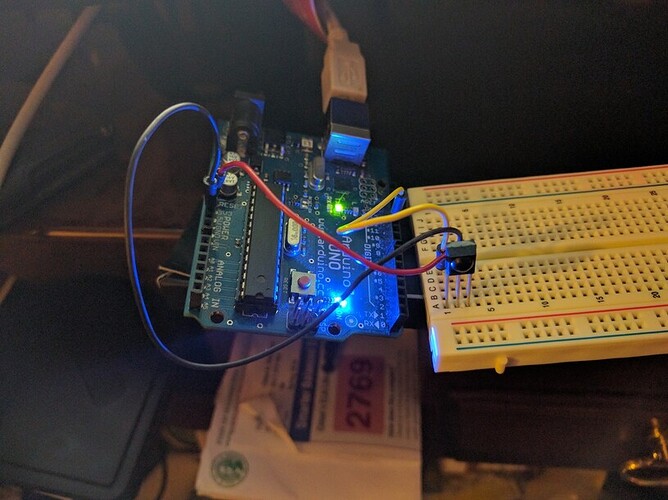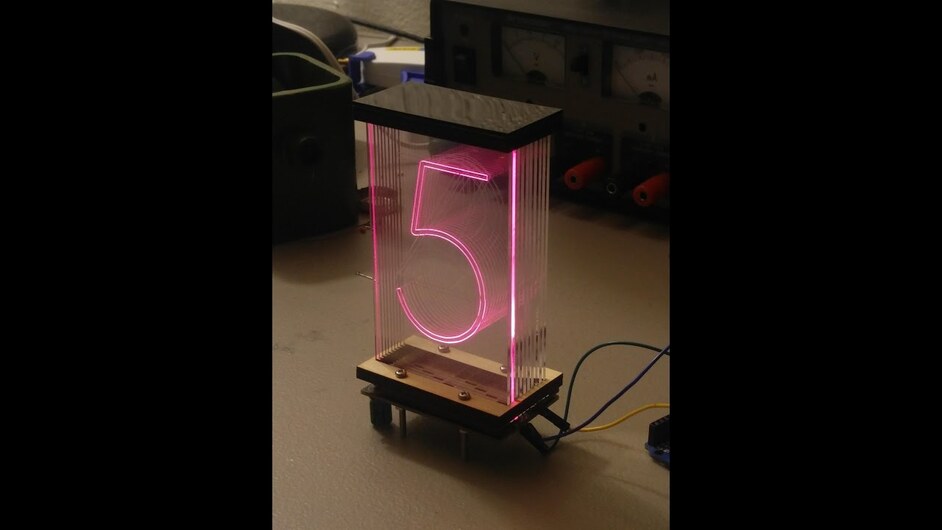One thing that I’ve found out that might be helpful for once your son is done with his kit is that there are plenty of parts that you can buy on their own that can expand what you’ve got with very little cost. It gets really easy once you figure out how to use libraries that people have put together to make programming these things as simple as pie. Not mincemeat pie. More like apple pie. Simple like that.
I didn’t buy a kit. I’ve just bought a thing here and there. The video above was an Arduino, some wires, and an ultrasonic sensor ($4). The (8) relay module ($8.49) came later and can be wired to an extension cord to control anything that plugs in to the wall. You might not want him playing with 120V, but it handles lower voltages just as well.
I also ended up picking up an Infrared Module for $5-$6, a piezzo element for $2.50, and a little breadboard for $10 once I learned Radio Shack was still a physical store in my area. They closed the two closest ones after the whole bankruptcy thing, so I didn’t know for a while. I’m sure you could find some of these things even cheaper online. I was just excited to find a Radio Shack.
So, currently, I have the IR module pressed into the breadboard and wired to power and one wire to a digital pin (11). I pulled out a bucket full of old remotes that my dearly departed father collected over the years and, using this IRremote library and one of it’s included example sketches, I can get the serial monitor to spit back HEX codes for the buttons that I press. That means that I could, for instance, tell it to play different notes out of the piezzo element depending on what HEX code is sent from a particular button on the remote. An IR remote piano from an Arduino, three wires, the IR module, and an old remote!
I’m sure to many of the smart people on this forum, that is not too terribly impressive, but I’ve never been able to do stuff like that before. Also, I know using libraries sort of takes away from a chance to understand how the code is making stuff happen exactly, but it does help with getting a “thing” built and feeling a sense of accomplishment. Also, you can always go through the library’s code to see.
Anyway, after all that rambling, has your son had much time to go through his kit? What’s he think of it?

 - Rich
- Rich